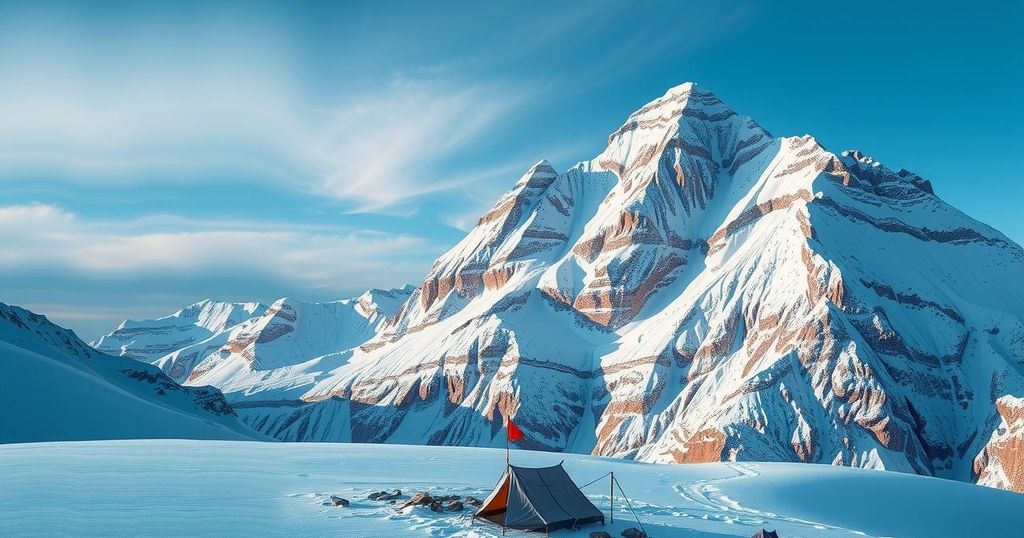Climbers headed to Pakistan’s Karakoram can celebrate as planned fee hikes have been postponed until 2026. Previously, individual permits were expected to cost almost three times more, raising concerns among climbers and expedition companies, prompting PATO to take legal action. Current prices will remain unchanged through this year, although climbers worldwide are facing similar fee increases in other regions like Nepal.
Climbers planning to explore Pakistan’s Karakoram Range will be relieved by the news that planned increases in climbing fees have been postponed until at least next year. In September 2024, local authorities had intended to change the fee structure from a group rate to individual permits, significantly raising costs for climbers. A permit holder in a group of seven, who previously shared a total fee of $12,000, would now face an individual fee of $5,000, representing an increase of nearly 300%.
This fee structure adjustment extended to other notable peaks in Pakistan, including Broad Peak, Gasherbrum I and II, and Nanga Parbat, alongside hiking permits. As a response to the impending price hikes, local expedition operators expressed concern as their clients began withdrawing interest, particularly those seeking to scale lower elevations. Many seasoned climbers started exploring alternative destinations outside Pakistan, prompting further discussions among stakeholders regarding pricing.
The Pakistan Association of Tour Operators (PATO) sought a court intervention for a temporary hold on the price increases. This action ultimately resulted in the decision to keep existing fee rates intact for the coming year. “This is good news for the mountaineers all over the world who were waiting for confirmation about the mountain royalty fees for 2025,” remarked PATO member Ali Saltoro from Alpine Adventure Guides.
Historically, Pakistan had maintained climbing permit prices at a steady rate following periods of unrest that deterred climbers. Prices saw a moderate increase in 2022, with K2 permits priced at $12,000 for groups of seven in 2023 and 2024, while other 8,000-meter peaks commanded 25% lower fees. Recent local tribunal rulings favour re-establishing the collective fee system as it was previously.
This trend of increasing climbing fees is not isolated to Pakistan; Nepal is also set to raise prices for climbing peaks above 6,500 meters starting in fall 2025, with Everest permits jumping from $11,000 to $15,000. In contrast, climbing operations in Tibet already face higher costs compared to other Himalayan regions, with current 2025 prices yet to see an increase. Expedition companies continue to receive and process permit applications despite varying political conditions.
Some expedition operators, currently planning climbs on prominent peaks such as K2 and Broad Peak, still harbor hesitations due to Pakistan’s delicate political climate. Lukas Furtenbach stated, “We have not decided if we’ll run our Pakistan trips this summer because of the political situation in and around Pakistan.”
The postponement of climbing fee increases in Pakistan has brought relief to climbers planning expeditions in the Karakoram Range. Ongoing negotiations and PATO’s legal actions have maintained the current fee structure for at least one more year, addressing concerns among climbers and expedition operators. As climbing fees continue to rise globally, the situation remains dynamic amid ongoing political considerations in Pakistan.
Original Source: explorersweb.com




